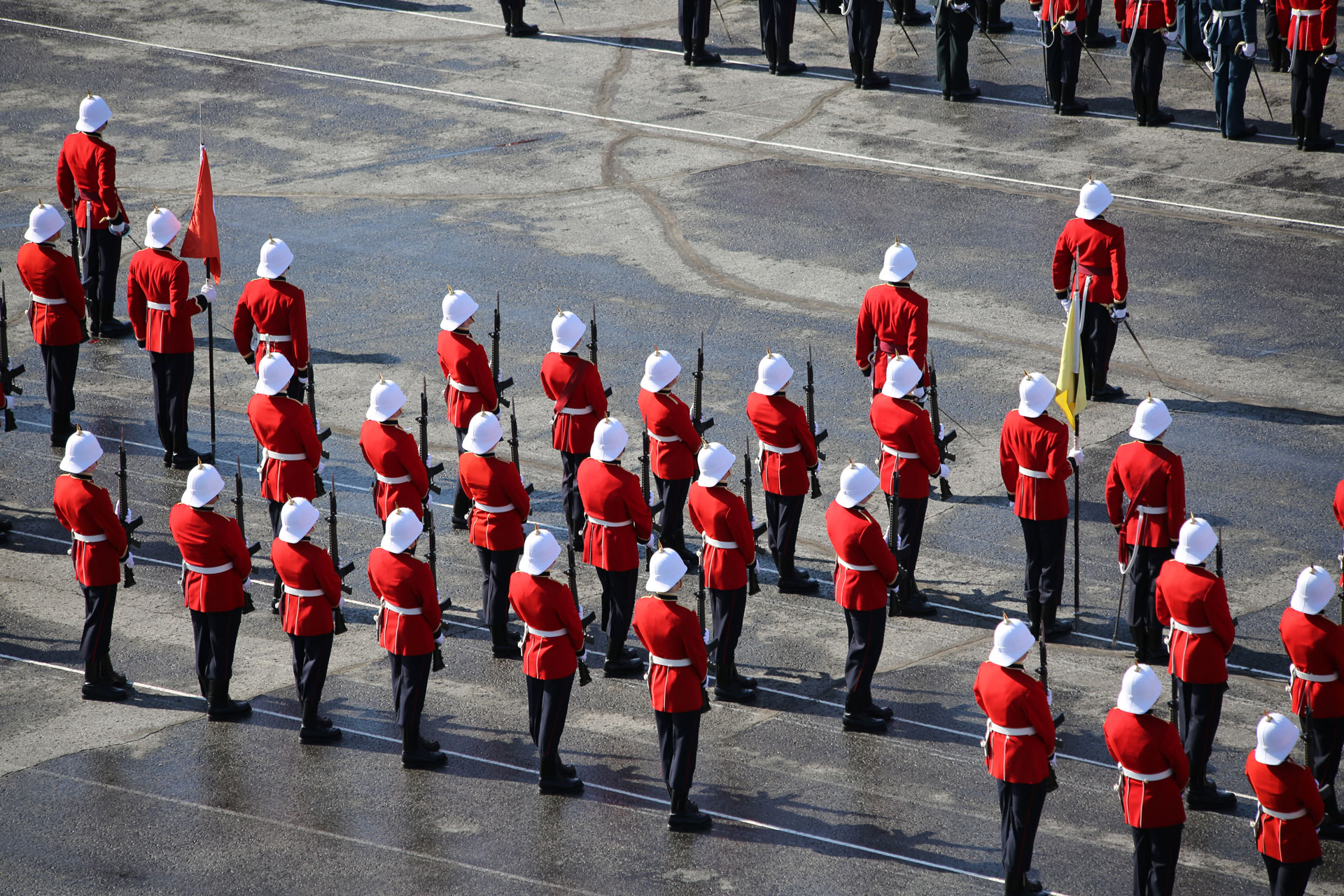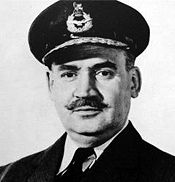
Who Is He?
• Was born 18 March 1907, in Winnipeg, Manitoba;
• After graduating from RMC in 1928, he took a commission in the RCAF;
• Received his pilot’s wings at Camp Borden in February 1929;
• After a few years of aerial surveying and staffing work, he was appointed commander of No. 5 (Bomber Reconnaissance) Squadron on Canada’s east coast in 1939 where he flew on anti-submarine and convoy escort operations;
• From August 1940 to March 1942, he worked with the British Commonwealth Air Training Plan as the officer commanding No. 3 Service Flying Training School (SFTS), at Currie Field in Calgary, Alberta;
• In December 1942, he became the Commanding Officer at RAF Middleton St. George;
• In February 1944 he was promoted from Group Captain to Air Commodore and was assigned to command No. 62 Base, No. 6 Group RCAF, headquartered at RAF Linton-on-Ouse;
• While visiting the base’s sub-station at RAF Tholthorpe, an incident occurred which earned him the George Cross, the highest gallantry award for civilians as well as for military personnel in actions which are not in the face of the enemy;
• From 1945–1948, he commanded the RCAF Staff College in Toronto. Until 1961, he commanded the Western Atlantic Area’s Canadian sub-area of NATO’s Allied Command Atlantic;
• An air cadet squadron based in Kingston, Ontario bears his name.
Who is he?
1780 Martin Costello;
1800 Hartland Molson;
1815 Arthur Ross;
2364 Leonard Birchall
 1815 Air Commodore Arthur Dwight Ross, GC, CBE, CD (18 March 1907 – 27 September 1981) was a Royal Canadian Air Force (RCAF) Base Commander of No. 62 Base, No. 6 Group RCAF in Yorkshire, England during the Second World War. A/C Ross received the George Cross for his actions on the night of 27/28 June 1944 at RAF Tholthorpe. Reference
1815 Air Commodore Arthur Dwight Ross, GC, CBE, CD (18 March 1907 – 27 September 1981) was a Royal Canadian Air Force (RCAF) Base Commander of No. 62 Base, No. 6 Group RCAF in Yorkshire, England during the Second World War. A/C Ross received the George Cross for his actions on the night of 27/28 June 1944 at RAF Tholthorpe. Reference

